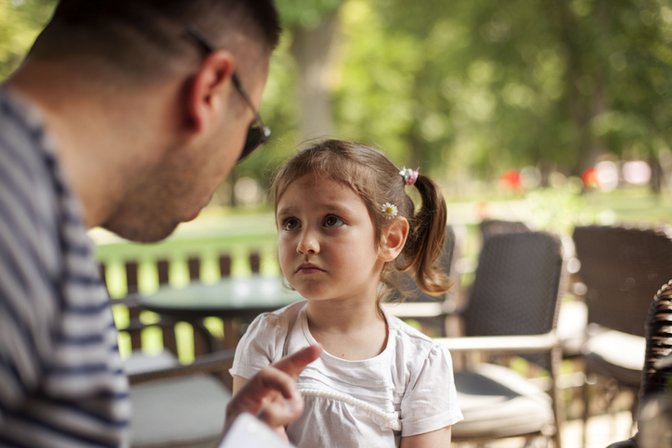Curious About "Eggshell Parenting"?
The kind of parenting that can make kids feel on edge around their parents.
CURRENT AFFAIRS

This term became viral in TikTok with over 300 million views and counting. It all started when licensed Clinical Psychologist Dr Kim Sage posted a video explaining this rather toxic style of parenting, which keeps children on their toes around the parent.
Eggshell Parents Are Unpredictable
Eggshell parents can be unpredictable, both emotionally and behaviourally. For children, it feels like a sudden shift from everything being okay to suddenly not.
The sudden change in their parent's mood, without any apparent reason, makes the child feel as though they have to tread lightly - like on eggshells - hence the name. A parent is the child's primary source of security, and so not knowing what to expect from them can feel destabilising for the child.
It's more than just being unpredictable, though. Dr Sage mentions that such parents might sometimes say hurtful things, threaten, shame, guilt-trip, or even punish their children excessively. In some instances, the child might even feel burdened with the responsibility of looking after their parent's emotional well-being.
Frequent yelling or outbursts at either their children or partners can also be a trait. Someone who lives in such an environment is constantly on alert. All of the yelling sends the body into a chronic state of fight or flight.
Often, these parents do not recognise the impact their behaviour has on their children.

The Consequences?
Eggshell parenting can have damaging results. While the term itself is new, there’s plenty of research on how parenting styles have an impact on children- from sleep to creativity to behavioural problems.
Dr Sage explains in her video that children who are raised by eggshell parents may develop coping mechanisms in their childhood that they carry forward to their adulthood.
“When children grow up in an environment where they always had to watch out, they can turn out to be hypervigilant as adults.”
Because their nervous system is on high alert, children with eggshell parents can be hypersensitive to everything in their environment, even sounds or smells. They may also learn to keep their head down - hiding their own feelings - so as not to provoke an outburst.
They might find social situations tricky because they’re constantly analysing things and over-interpreting situations, on the lookout for signs of conflict.
The Eggshell Cycle Can Be Broken
Remember, it's normal for people to get frustrated and lose their tempers sometimes. Many parents give mixed messages to their children once in a while. That doesn't mean that they're eggshell parents. Essentially, with eggshell parenting, unpredictability and emotional expression are at the extreme ends.
Recognising signs of eggshell parenting in yourself can be upsetting and overwhelming. If you think you're able to relate to some of the behaviours described here, it might be time to think about why and make some changes.
Here are some things to help you with it:
Be predictable
When the parent’s behaviour is consistent, the child will feel safer and there will be more trust in your relationship
Say sorry
When you apologise to your child after an emotional outburst, you show them that you’re working on your emotions. They learn that mistakes are okay and that they should take responsibility for them.
Work on emotional regulation
Keep an eye out for things that trigger extreme emotions and work on managing them. Try deep breathing techniques to help you during tough situations.
Seek professional support
Consider seeking advice from a therapist or counsellor for help understanding your triggers and managing your emotions.
Ultimately, a parent's goal is to provide their children with a nurturing environment where they can thrive. After all, how you interact with your child and the environment you create for them while they’re growing up is something they will carry with them for the rest of their life.
Sources:
-Braza P, Carreras R, et al. (2013).Negative Maternal and Paternal Parenting Styles as Predictors of Children’s Behavioral Problems: Moderating Effects of the Child’s Sex. Journal of Child and Family Studies.
-Dong Y, Lin J. et al. (2022).How parenting styles affect children’s creativity: Through the lens of self. Thinking Skills and Creativity.
-Brand S, Hatzinger M, et al. (2009).Perceived parenting styles, personality traits and sleep patterns in adolescents. Journal of Adolescence.